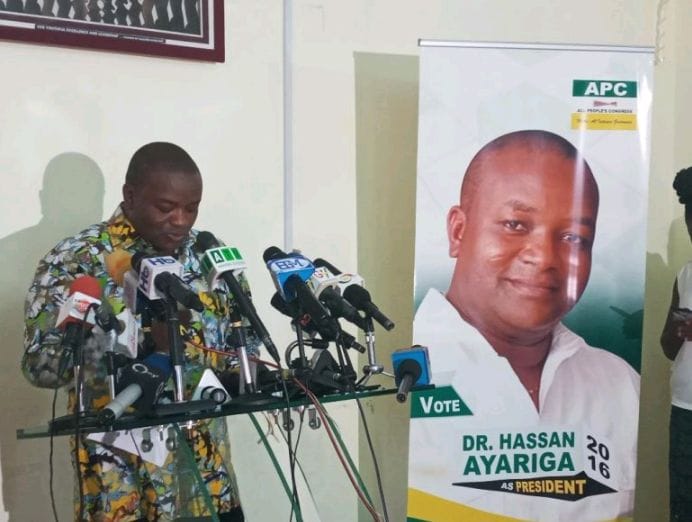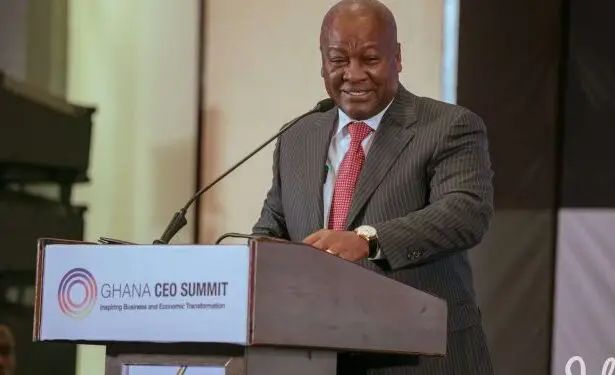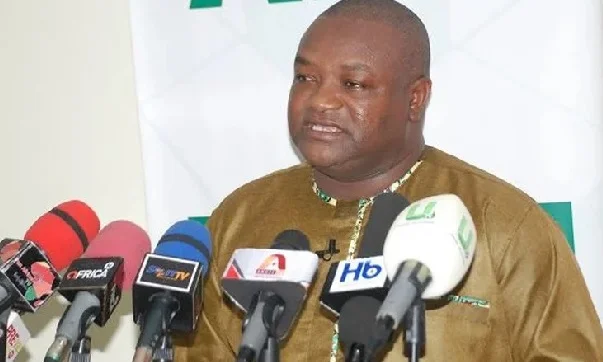Founder and Leader of the All People’s Congress (APC), Dr. Hassan Ayariga, has lauded the leadership of President John Dramani Mahama for what he describes as “commendable fiscal discipline and sound economic policies” that have led to the recent stabilisation of the Ghanaian Cedi.
In a statement released by the APC, Dr. Ayariga called on the country’s business community, particularly importers, traders, and wholesalers, to respond to this macroeconomic progress by reducing prices of goods and services to reflect the gains made.
Describing the cedi’s recent appreciation as a significant economic relief, Dr. Ayariga emphasised the need for the benefits of currency stability to be felt across the broader population.
“In light of this progress, the APC and Dr. Hassan Ayariga urge Ghanaian businessmen and women, especially those in the retail and wholesale sectors, to reflect this economic stability in their pricing.
“It is both fair and necessary that the benefits of a stronger Cedi translate into reduced prices of goods and services across the market.”
Dr Hassan Ayariga, Leader and Founder All Peoples Congress
He argued that beyond economic logic, such a move would demonstrate patriotism and solidarity with ordinary Ghanaians who have endured years of economic uncertainty and hardship.
The APC’s message aligns with growing calls within the political and business leadership circles for a more responsive and socially conscious business environment in the face of improving macroeconomic indicators.

Improving Standard of Living
Dr. Ayariga believes that lowering prices will not only improve the standard of living for Ghanaians but also stimulate consumer demand and support the country’s economic recovery. “Together, we can build an economy that is strong, inclusive, and equitable,” he said, echoing his party’s vision for a more compassionate economic order.
Dr. Ayariga’s statement comes on the heels of recent remarks made by President John Dramani Mahama at the 9th Ghana CEO Summit, where he commended businesses that had begun adjusting prices in response to the cedi’s appreciation.
President Mahama singled out companies such as Oca Decor and associations like the Ghana Private Road Transport Union (GPRTU) for lowering prices—a move he urged other businesses to emulate.

At the summit, President Mahama framed the current moment as a turning point for Ghana’s economic reset. Calling for a revitalised partnership between the public and private sectors, he encouraged business leaders to see this economic moment not merely as a shift in policy but as a national mission.
This renewed optimism about Ghana’s economic prospects is driven, in part, by the more stable exchange rate, a decline in inflation, and tentative signs of macroeconomic recovery.
However, consumer prices in many sectors remain stubbornly high despite the cedi’s recent appreciation—a concern that has prompted political leaders, civil society actors, and economic experts to pressure businesses to match price trends with economic fundamentals.
While some businesses have responded positively, citing reduced import costs and currency stability as motivation for slashing prices, others have been slow to adjust, attributing their caution to accumulated debts, operational costs, and market uncertainties.
But Dr. Ayariga argues that the economic burden cannot continue to fall disproportionately on consumers. He warned that if businesses fail to pass on the benefits of macroeconomic stability to consumers, it could stall the broader recovery efforts and widen inequality.
“The role of the private sector in economic transformation must go beyond profit margins—it must also reflect shared sacrifice and shared recovery”.
Dr Hassan Ayariga, Leader and Founder All Peoples Congress

For many, the cost of living is the true litmus test for the cedi’s recent appreciation for the typical Ghanaian consumer. Even though the cedi is increasing in value, the macroeconomic recovery will remain a theoretical concept unless food prices, transportation costs, building materials, and other necessities follow suit.
Because of this, Dr. Ayariga’s call to action is as much about national empathy as it is about economic policy. It remains to be seen if the larger business community will find resonance in this message.
However, it is hoped that Ghanaian businesses will contribute to a shared national future as well as act as economic actors during a period when trust in leadership and systems is gradually being restored.
READ ALSO: Fuel Prices Could Drop to GHS 12 Per Litre – AOMCs



















